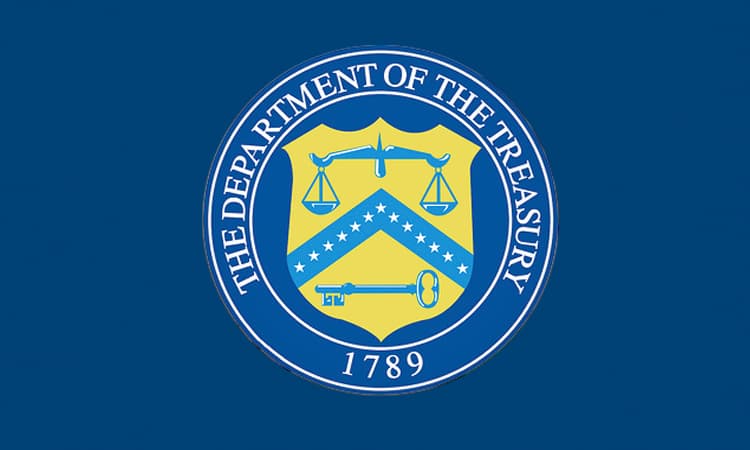The 5 Most Common OFAC Sanctions Violations and How to Avoid Them
The introduction of sanctions by the United States Treasury Department’s Office of Foreign Assets Control (OFAC) has become a key component of the international legal framework, aimed at maintaining global security and stability. However, despite the strictness and comprehensiveness of these measures, violations of OFAC sanctions continue to be one of the most serious threats for companies involved in international trade and finance. Non-compliance with these sanctions can lead to significant legal, financial, and reputational consequences. Let’s examine the five most common violations of OFAC sanctions and offer recommendations for their prevention.
What are OFAC Sanctions?
OFAC sanctions are a set of legal measures aimed at restricting economic activities with certain countries, organisations, and individuals that pose a threat to the national security, foreign policy, or economy of the US. These sanctions range from comprehensive trade embargoes to targeted sanctions against specific individuals or organisations listed in the Specially Designated Nationals and Blocked Persons List (SDN). Failure to comply with these sanctions can result in severe legal penalties, including substantial fines and even criminal prosecution.
In the event of any problems, we recommend getting in touch with our OFAC licensing lawyers, which will help you anticipate and subsequently avoid sanctions capable of leading to reputational or economic consequences.
Why Compliance is Critical?
Adhering to OFAC sanctions is crucial for any company engaged in international activities. Violating these sanctions not only jeopardizes the financial stability and reputation of a company but can also lead to severe legal consequences, including multimillion-pound fines, asset seizure, and a prohibition on doing business with American partners. Companies that knowingly or negligently breach sanctions face the risk of criminal prosecution, which can seriously undermine their market position.
Violation 1: Doing Business with SDN-Listed Entities
One of the most common infringements involves conducting business with organisations or individuals listed on the Specially Designated Nationals and Blocked Persons (SDN) list. This list is regularly updated and includes organisations, individuals, and even vessels associated with terrorism, proliferation of weapons of mass destruction, and other threats. Failing to comply with this prohibition can lead to substantial fines and criminal liability.
To avoid infringements: Companies should regularly check their counterparties and business partners against the SDN list using specialised software and sanction monitoring tools. Additionally, it’s crucial to continually update information on partners and keep abreast of updates to the SDN list to prevent accidental breaches.
Violation 2: Failure to Report Blocked or Rejected Transactions
Another common infringement is the failure to properly notify about blocked or rejected transactions. According to legislation, financial institutions and companies are required to immediately inform OFAC of any blocked assets or rejected transactions related to sanctioned individuals or states.
To avoid infringement: Financial institutions and companies must develop clear procedures for the timely identification, blocking, and reporting of such transactions. It is essential to train staff and implement effective internal controls to ensure compliance with these requirements.
If you have any doubts about the legality of the sanctions imposed on you or your organisations, we recommend that you get in touch with our OFAC representation solicitors, who will provide you with all necessary legal support to protect your interests.
Violation 3: Facilitating Transactions Through Intermediaries
Using intermediaries to circumvent sanctions also constitutes a serious breach. Some companies may attempt to employ third parties or intricate schemes to carry out transactions that would otherwise be prohibited. OFAC considers such actions as attempts to circumvent sanction regimes, which can lead to particularly severe consequences.
To avoid infringement: Companies must conduct a thorough vetting of all counterparties, including intermediaries and third-party agents. Any suspicious schemes should be immediately investigated and halted. It’s crucial not only to avoid direct violations but also to meticulously monitor supply chains and financial transactions.
Violation 4: Inadequate Compliance Programs
Inadequate sanction compliance programmes can also lead to serious breaches. A lack of internal controls, the absence of regular audits, and insufficient staff training can cause unintentional violations that, nonetheless, may result in hefty fines.
To avoid infringement: To ensure full compliance with sanctions requirements, it’s necessary to develop and implement a comprehensive sanctions compliance programme, which includes regular audits, staff training, and the introduction of control systems. These measures will help minimise risks and prevent potential breaches.
Violation 5: Exporting Goods to Sanctioned Countries
Breaching the export ban on goods to sanctioned countries is another common infringement, often linked to ignorance or disregard of sanction requirements. This violation can have serious consequences for both the company and its executives.
To avoid violations, it is necessary to ensure strict control over export operations, including regularly updating knowledge about sanction regimes and monitoring all transactions related to exports. Companies must implement procedures for checking end recipients and obtain the necessary licences for exporting to countries that are subject to sanctions.
Looking for Sanctions Lawyers?
If you’re facing issues with sanctions compliance or suspect that your company might be in breach of OFAC sanctions, it’s advisable to seek assistance from an OFAC law firm specialising in sanctions law. Our experts can help you develop effective compliance strategies and avoid serious repercussions. Whether it’s drafting a compliance programme or assessing risks, professional legal support is a crucial component in safeguarding your business on the international stage.
Ultimately, adhering to OFAC sanctions is a complex and multifaceted process that requires constant vigilance and a readiness to adapt to changes in legislation. Companies aiming to minimise their risks must be prepared to invest resources into developing and maintaining effective sanction compliance programmes. Only by doing so can they ensure that their international operations remain within the legal framework and are protected against serious legal and financial repercussions.








